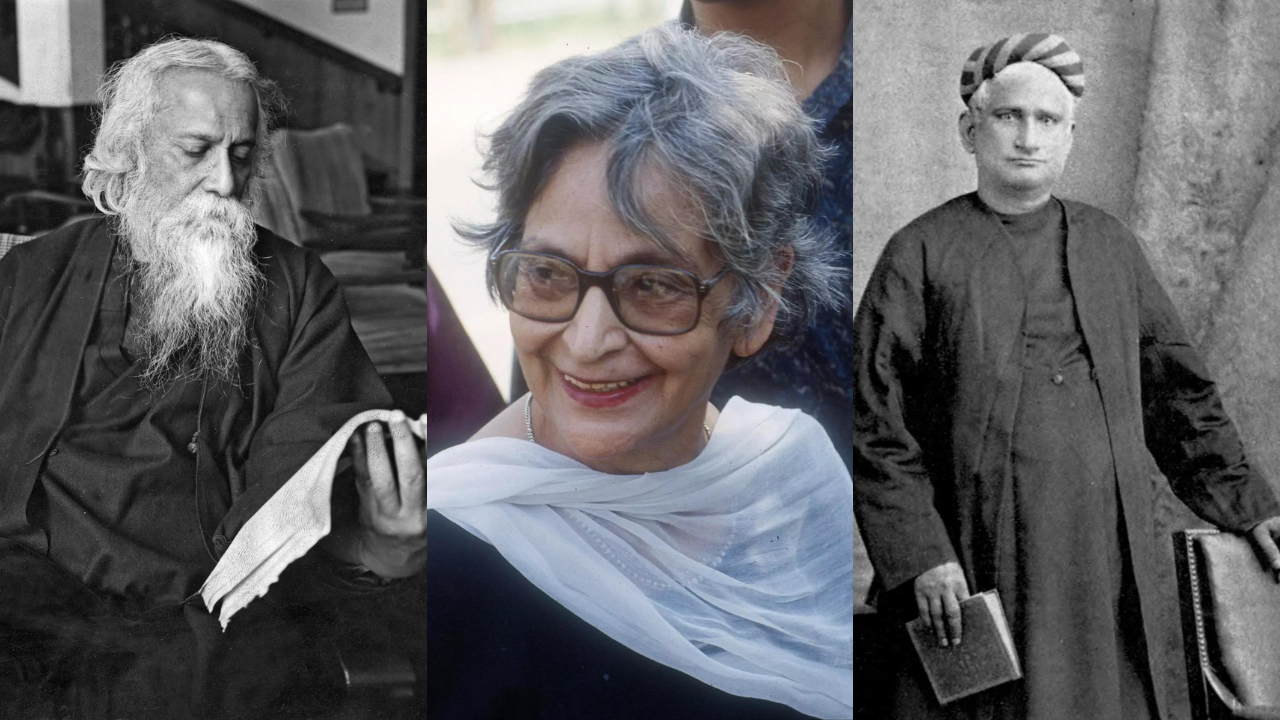78th Independence Day: Indian writers who participated in India’s freedom struggle (Image credit: Wikipedia)
As we celebrate our 78th anniversary Independence DayIt is important to remember not only the political leaders and freedom fighters who played important roles in achieving the nation’s independence, but also the writers and intellectuals who used their pens as powerful tools in the struggle. These Indian writers contributed to the freedom movement by inspiring the masses, spreading nationalist ideas and documenting the experiences of the time. Their words not only kindled the spirit of independence but also laid the foundation for India’s rich literary tradition.
Here is a look at some of the Indian writers who were actively involved in India’s freedom struggle.
1. Rabindranath Tagore
Rabindranath Tagore, the first Asian to win the Nobel Prize in Literature, was not only a prolific writer but also a passionate advocate of Indian independence. Through his poetry, songs and essays, Tagore inspired a sense of nationalism among Indians. His composition Jana Gana Mana, which later became India’s national anthem, is a testament to his deep love for the country. Tagore’s criticism of British rule, particularly in works such as Gora and The Home and the World, highlighted the contradictions and challenges of colonialism and advocated self-reliance and cultural renaissance.
2. Mahatma Gandhi
Mahatma Gandhi, revered as the Father of the Nation, was not only a leader of the independence movement but also an influential writer. His writings, including “Hind Swaraj” (1909), articulated his vision of an independent India free from British rule. “Hind Swaraj” is a foundational text in which Gandhi discusses the concept of “Swaraj” (self-rule) and criticizes modern civilization and colonialism. His autobiography, “The Story of My Experiments with Truth,” offers deep insight into his personal life, his struggles, and the principles that guided his leadership in the freedom struggle.
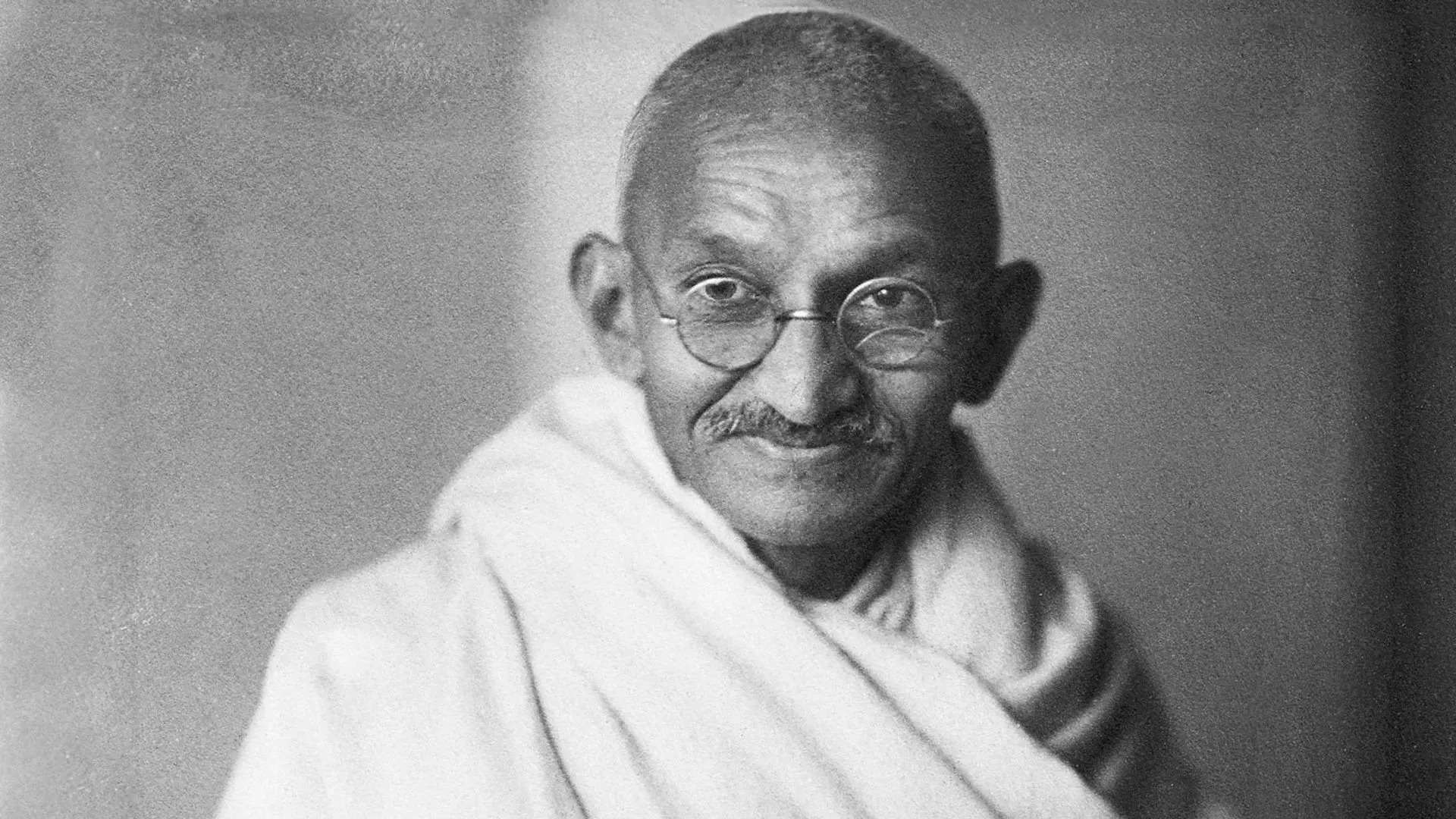
3. Jawaharlal Nehru
Jawaharlal Nehru, India’s first Prime Minister, was also a prolific writer whose works continue to inspire generations. Nehru’s book, The Discovery of India, is one of his most significant contributions, written during his imprisonment by the British. The book explores India’s rich cultural heritage and the idea of India as a civilization. Nehru’s letters to his daughter, later compiled as Letters from a Father to his Daughter and Glimpses of World History, also reflect his thoughts on freedom, justice, and the global context of India’s struggle.
4. Subhas Chandra Bose
Subhas Chandra Bose, known for his leadership of the Indian National Army (INA), was also an eloquent writer and orator. His speeches and writings reflect his strong views on independence, militant nationalism and his belief in the power of armed struggle. His autobiography, ‘An Indian Pilgrim’, gives an insight into his early life, his motivations and his experiences as a freedom fighter. Bose’s writings remain influential, especially among those who view the struggle for independence as a complex and multifaceted movement.
5. Sarojini Naidu
Sarojini Naidu, also known as the Nightingale of India, was a celebrated poet and a prominent leader of the Indian independence movement. Naidu’s poetry, written in English, often reflected her deep patriotism and love for her country. Her works, such as “The Broken Wing” and “The Bird of Time,” are imbued with themes of freedom and resistance. Beyond her literary contributions, Naidu played a crucial role in the Civil Disobedience Movement and was the first woman to become president of the Indian National Congress.
6. Bipin Chandra Pal
Bipin Chandra Pal, a key figure in India’s freedom struggle, was also a noted writer and journalist. Pal was one of the members of the Lal-Bal-Pal triumvirate, which was instrumental in promoting the Swadeshi movement and advocating self-reliance. His writings, including “The Spirit of Indian Nationalism” and numerous articles in journals like “New India” and “Vande Mataram”, were powerful tools in spreading nationalist ideas. Pal’s eloquence and conviction in his writings prompted many Indians to join the freedom movement.
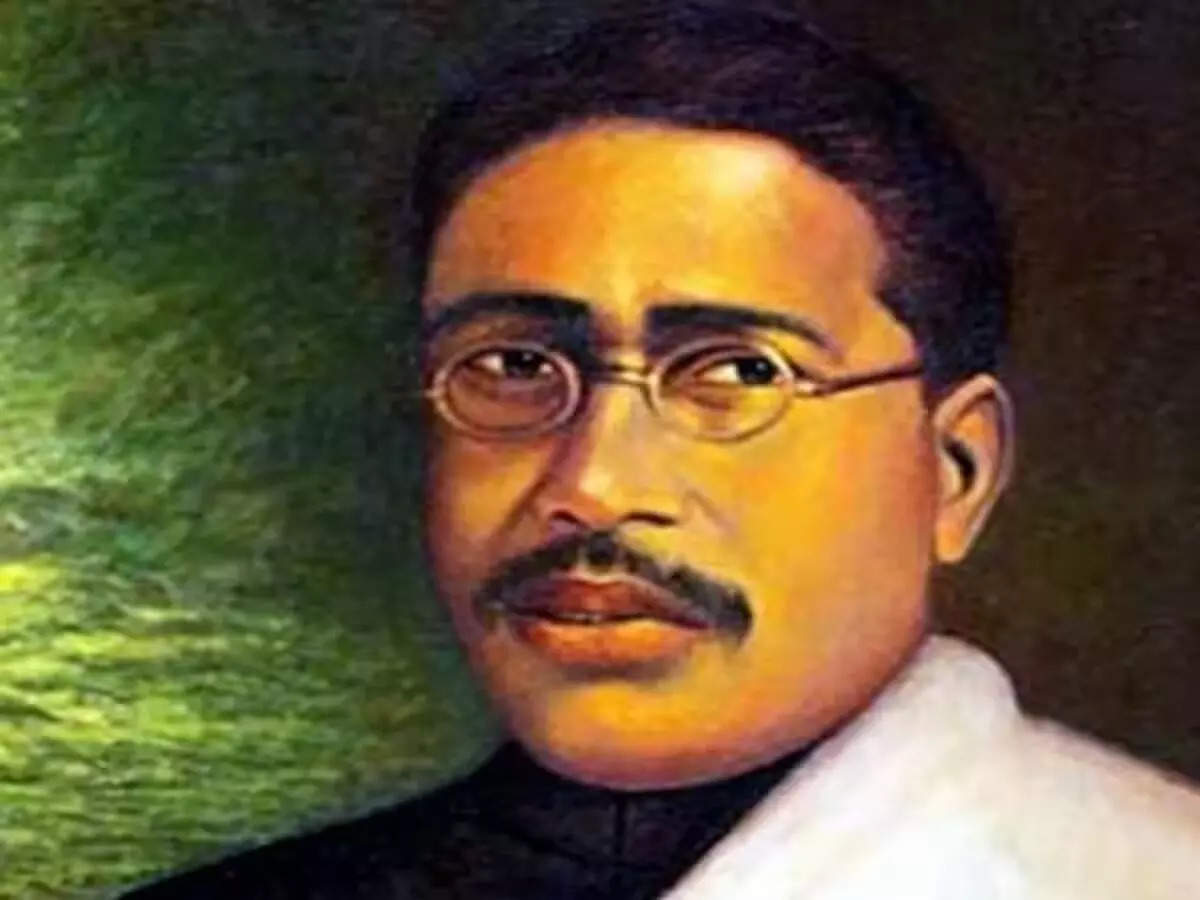
7. Bal Gangadhar Tilak
Bal Gangadhar Tilak, often called the “father of Indian unrest”, was a freedom fighter, teacher and writer. His famous statement “Swaraj is my birthright and I shall have it” became a rallying cry for the independence movement. Tilak was the editor of two important newspapers, ‘Kesari’ (in Marathi) and ‘The Mahratta’ (in English), through which he spread his ideas of nationalism and resistance to British rule. His writings and speeches were instrumental in awakening the political consciousness of Indians and mobilizing them for the struggle.
8. Bankim Chandra Chattopadhyay
Bankim Chandra Chattopadhyay, one of the earliest Indian novelists, is best known for his novel ‘Anandamath’, which contains the patriotic song ‘Vande Mataram’. This song became an anthem for freedom fighters and played an important role in the Indian independence movement. Bankim Chandra’s depiction of the struggle against British rule in ‘Anandamath’ and his other writings inspired many to join the cause of independence. His works are considered pivotal in the development of modern Indian literature.
9. Mulk Raj Anand
Mulk Raj Anand was one of the first Indian English-language writers to gain international recognition. He was deeply influenced by the independence movement and was closely associated with Mahatma Gandhi. Anand’s novels such as Untouchable and Coolie highlight social injustices and the plight of the underprivileged in colonial India. His writings were a form of protest against British rule and the caste system and played a crucial role in raising awareness about the social and political issues of the time.
10. Premchand
Munshi Premchand, one of the most celebrated writers in Hindi and Urdu, used his pen to highlight the social issues of his time, including the impact of British rule on the Indian peasantry. His novels, such as Godaan and Rangbhoomi, depict the struggles of the common people and their resistance against exploitation. Premchand’s realistic portrayal of rural India and the challenges faced by its people made his works resonate with the masses, and his stories became a source of inspiration for many who participated in the freedom struggle.
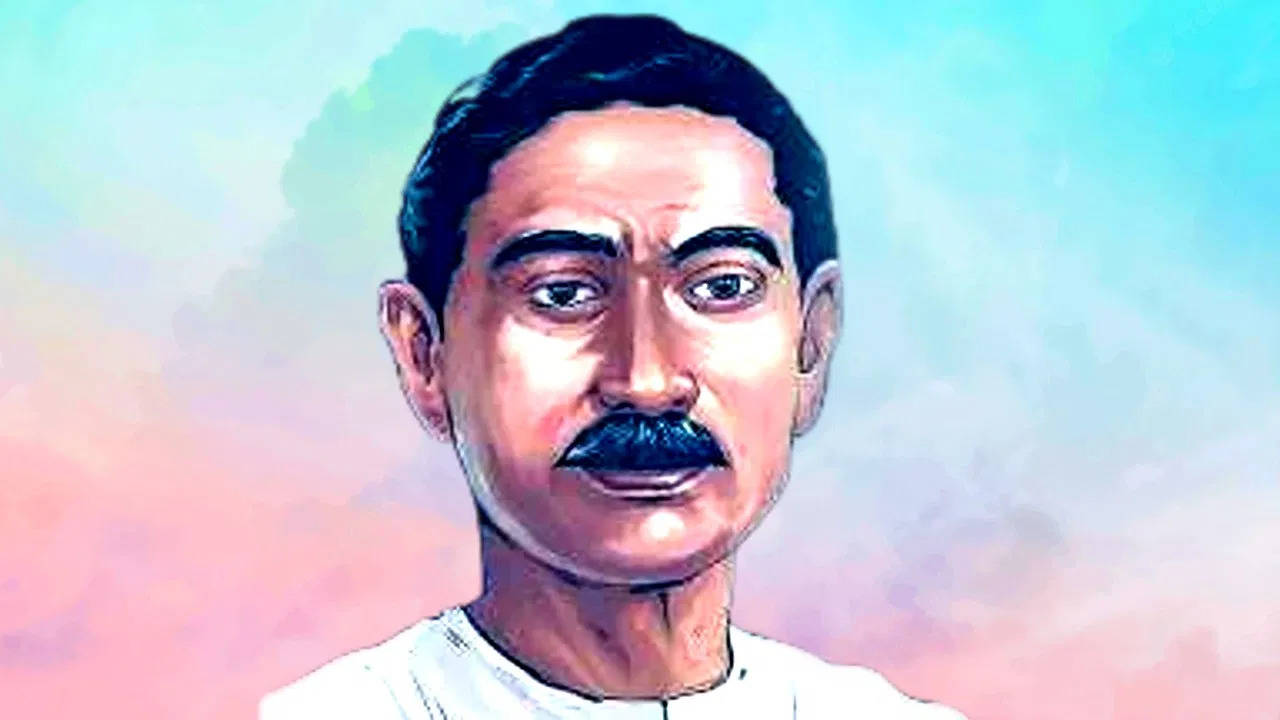
11. Maulana Abul Kalam Azad
Maulana Abul Kalam Azad was not only a prominent leader of the Indian National Congress but also a prolific writer, scholar and journalist. His work as editor of Al-Hilal and Al-Balagh was instrumental in promoting nationalist ideas among India’s Muslim community. Azad’s writings, including his autobiography India Wins Freedom, offer valuable insights into the political dynamics of the time and his vision of a united and independent India. His literary contributions played a key role in mobilizing support for the freedom movement across different communities.
12. Bhagat Singh
Bhagat Singh, one of India’s most revered revolutionaries, was also a passionate writer who used his words to inspire and mobilize others. His essays, such as “Why I Am an Atheist” and “The Philosophy of the Bomb,” reflect his revolutionary ideas and deep commitment to the cause of independence. Singh’s writings were a call to arms for India’s youth, urging them to join the fight against British rule. His martyrdom and literary legacy continue to inspire generations of Indians.
13. Lala Lajpat Rai
Lala Lajpat Rai, known as the “Lion of Punjab”, was a prominent leader and writer who played a key role in India’s independence movement. Rai’s works, including “Young India” and “The Story of My Deportation”, were sharp criticisms of British rule and demanded immediate independence. His writings, combined with his activism, made him a major figure in the struggle, particularly in Punjab. Rai’s dedication to the cause of independence was unwavering and his contributions continue to be remembered.
14. Vishnu Prabhakar
Vishnu Prabhakar, a renowned Hindi writer, was deeply influenced by the freedom struggle and the ideals of Mahatma Gandhi. His works, including the novel Ardhangi and the biography Aawara Masiha (on Bengali writer Sarat Chandra Chattopadhyay), reflect the socio-political changes of the time. Prabhakar’s writings were a means of raising awareness about the independence movement and the social reforms needed in Indian society. His literary contributions helped shape the narrative of the freedom struggle in Hindi literature.
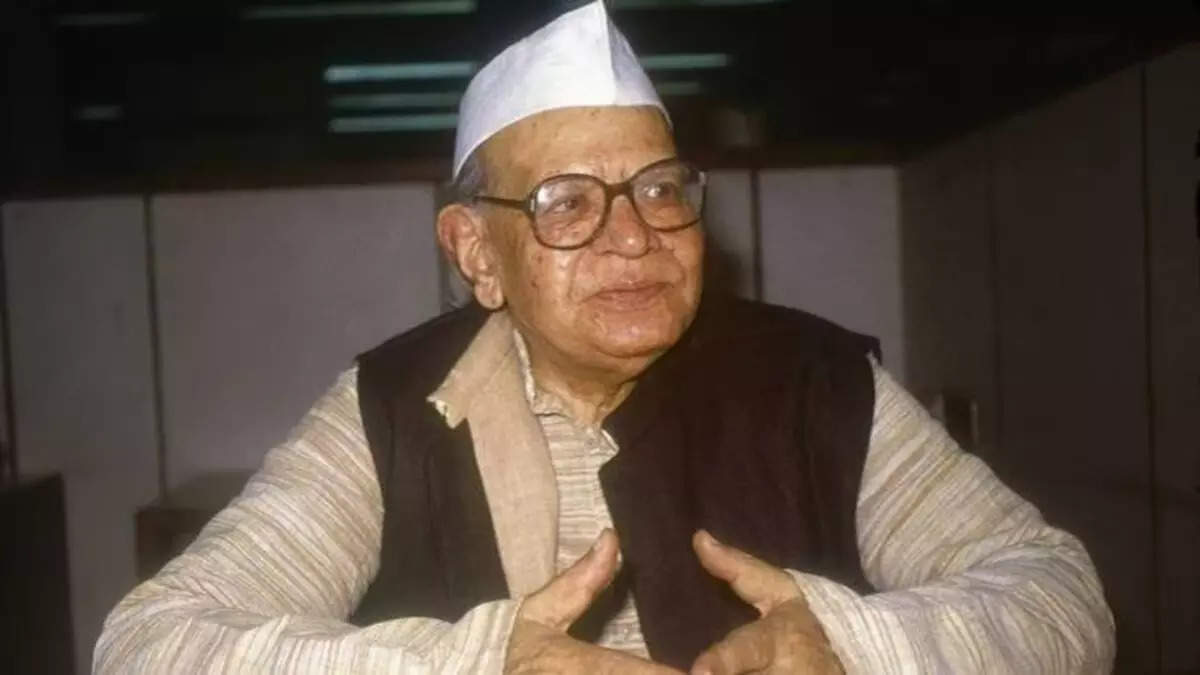
15. Amrita Pritam
Amrita Pritam, one of the most prominent writers of Punjabi literature, was an outspoken critic of British rule and the Partition of India. Her poem “Ajj Aakhaan Waris Shah Nu” is a poignant reflection on the horrors of Partition, which she witnessed first-hand. Pritam’s writings often addressed themes of grief, loss and resilience, and reflected the experiences of those who lived through the tumultuous period of India’s struggle for independence. Her works remain a powerful testament to the impact of the freedom struggle on people’s lives.
The contributions of these writers to India’s struggle for independence go far beyond their literary achievements. Through their works, they inspired a sense of national pride, documented the injustices of colonial rule, and mobilized people from all walks of life to join the struggle for independence. As we celebrate the 78th Independence Day, it is important to remember
and honour these writers who used the power of their words to contribute to India’s journey to freedom. Their legacy continues to influence and inspire us today, reminding us of the enduring power of literature to shape the destiny of a nation.
Disclaimer:
The information contained in this post is for general information purposes only. We make no representations or warranties of any kind, express or implied, about the completeness, accuracy, reliability, suitability or availability with respect to the website or the information, products, services, or related graphics contained on the post for any purpose.
We respect the intellectual property rights of content creators. If you are the owner of any material featured on our website and have concerns about its use, please contact us. We are committed to addressing any copyright issues promptly and will remove any material within 2 days of receiving a request from the rightful owner.

